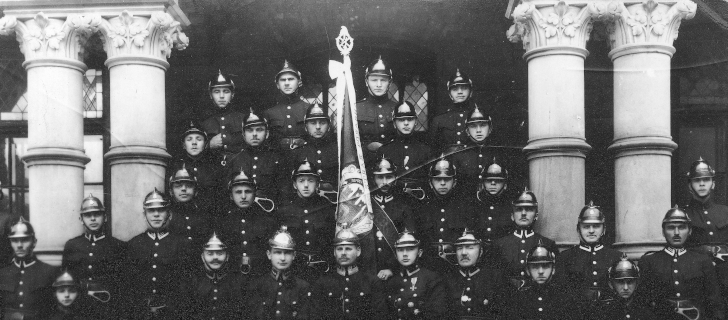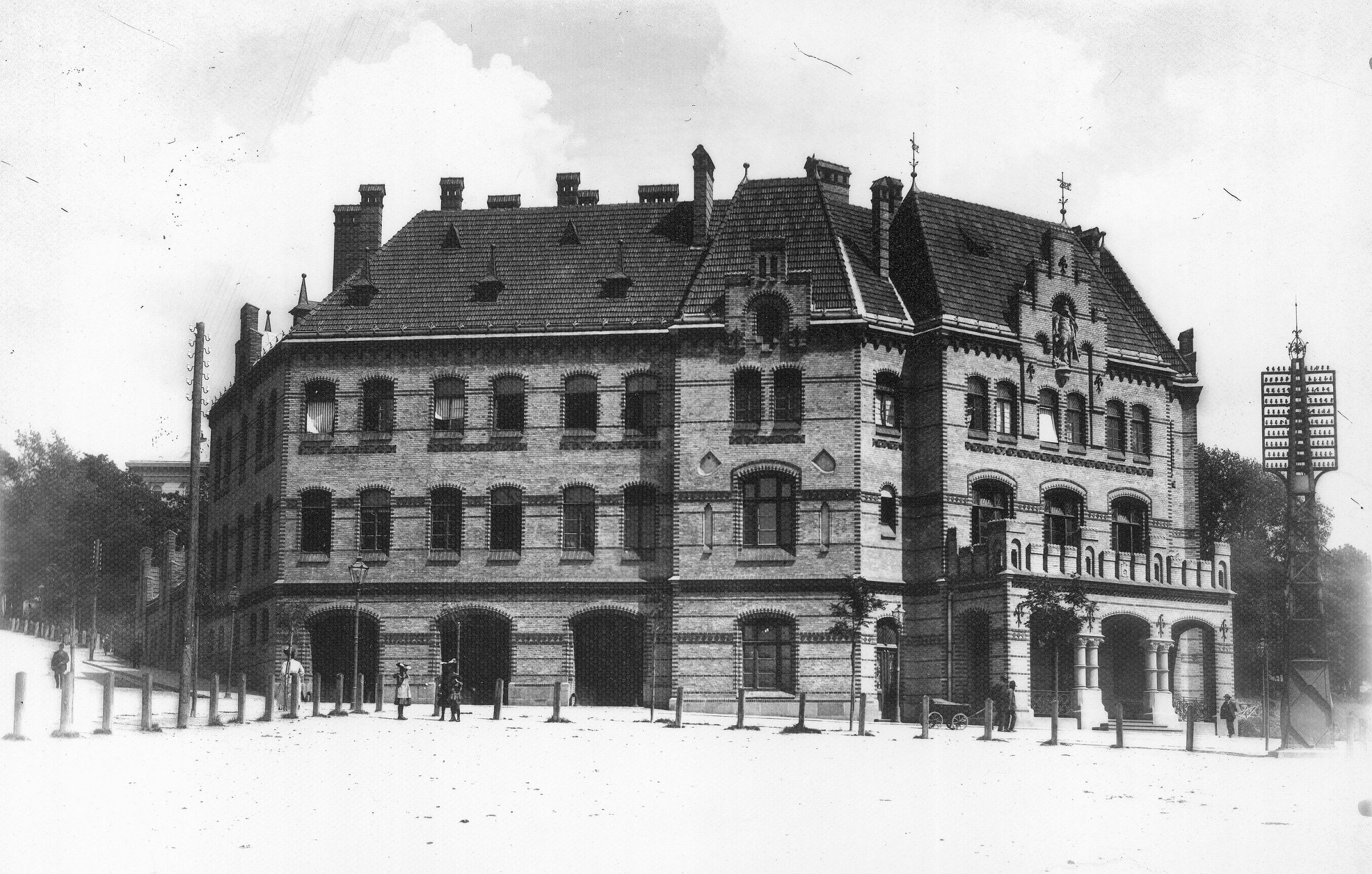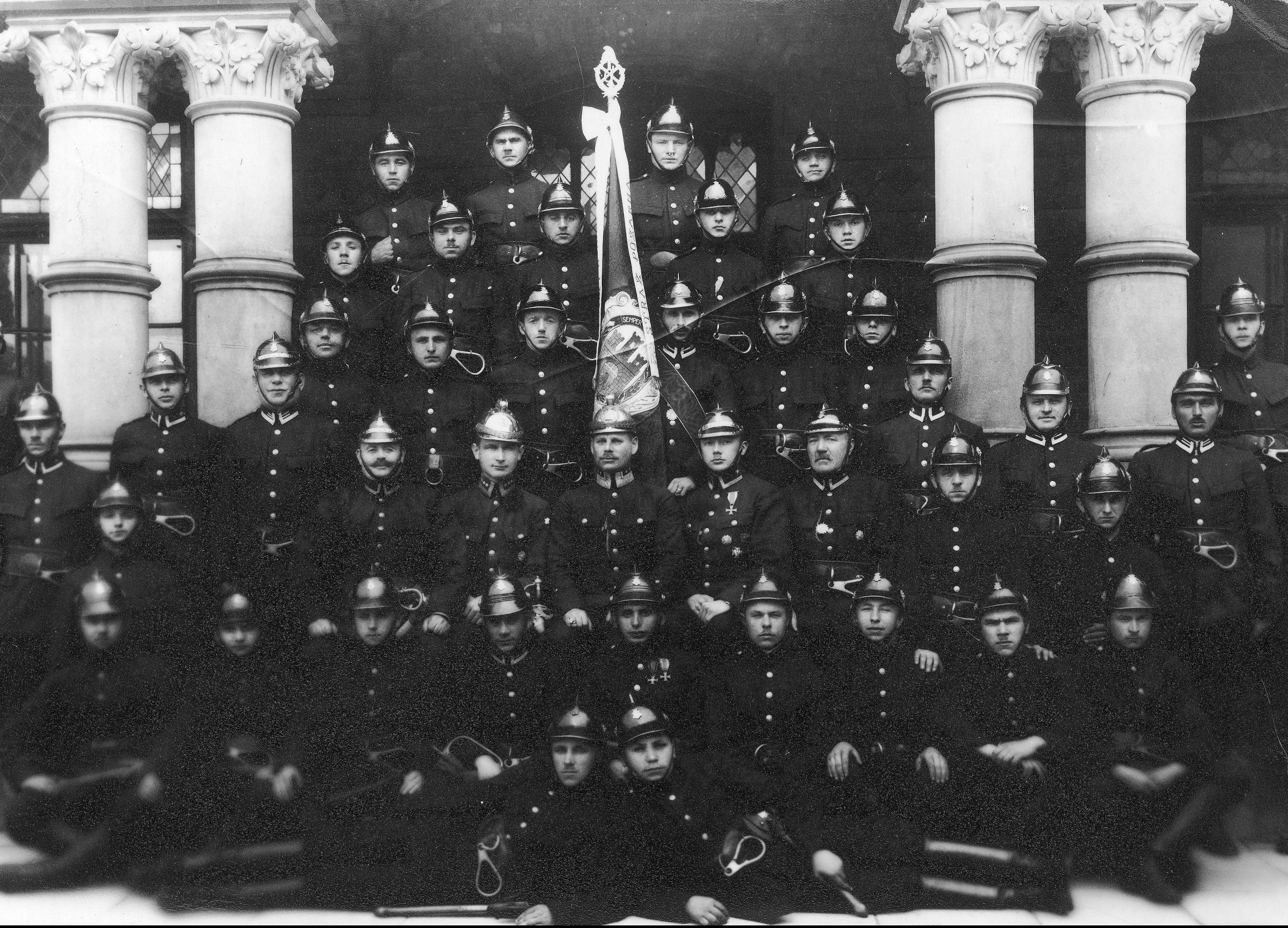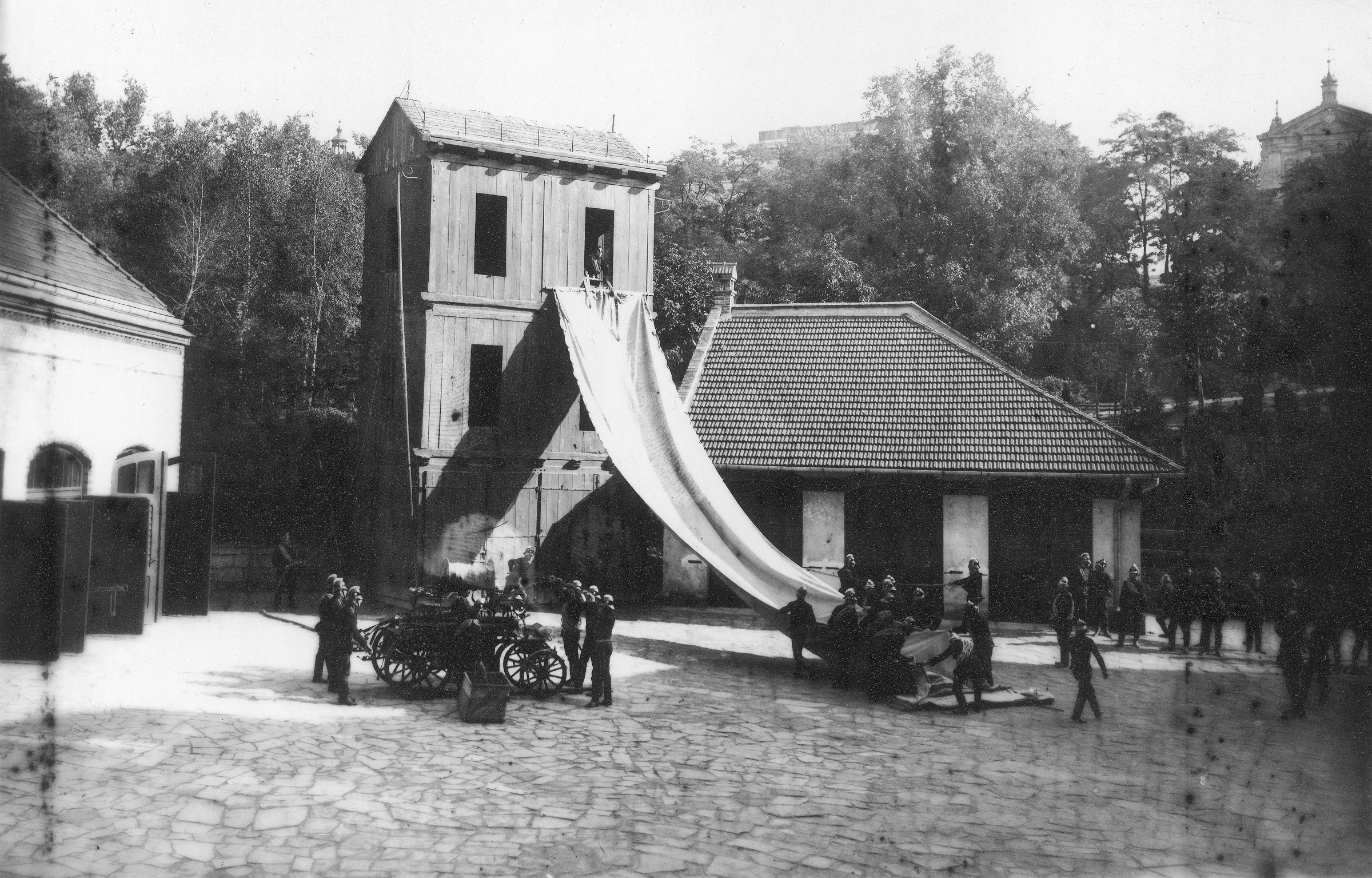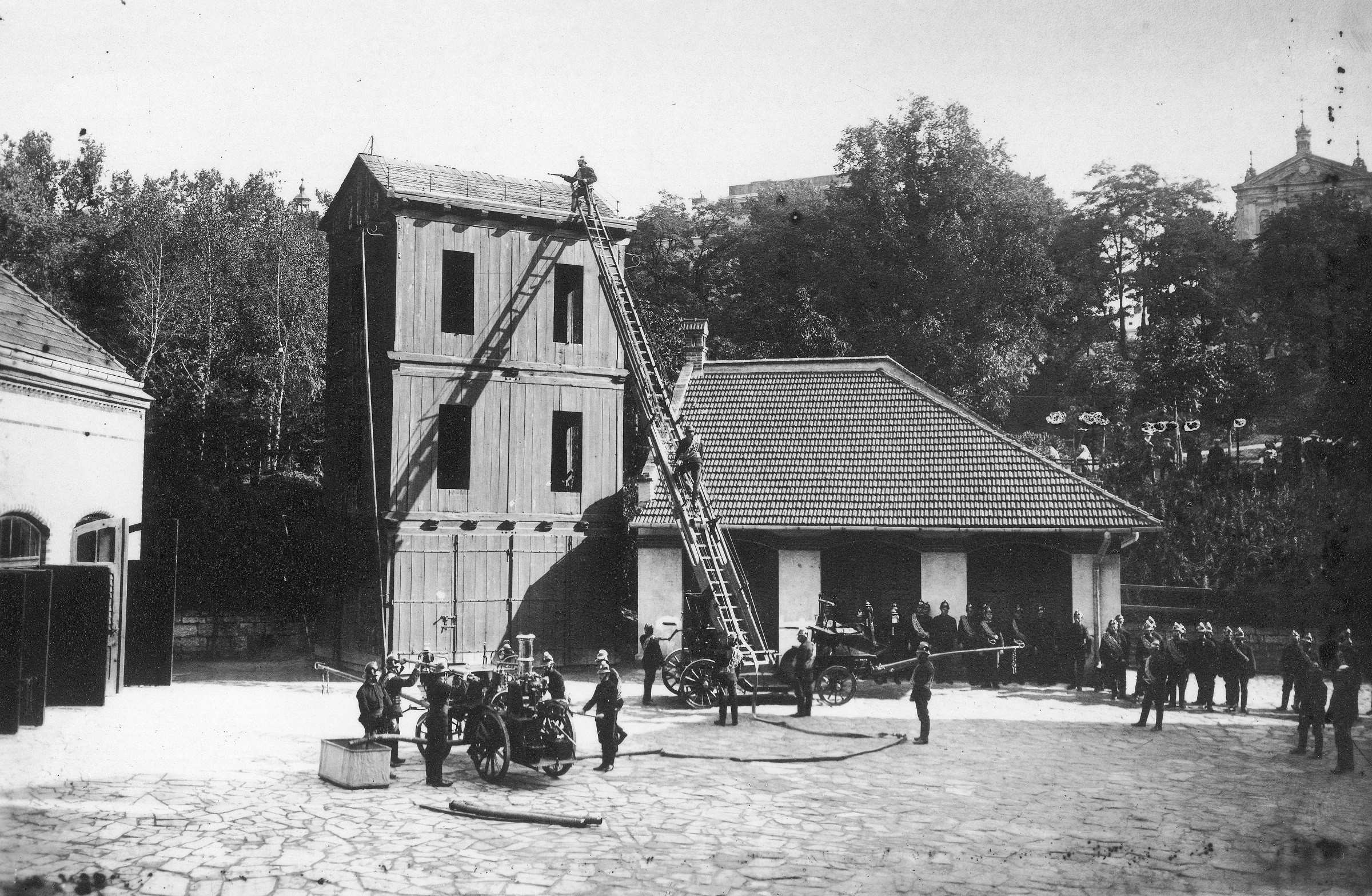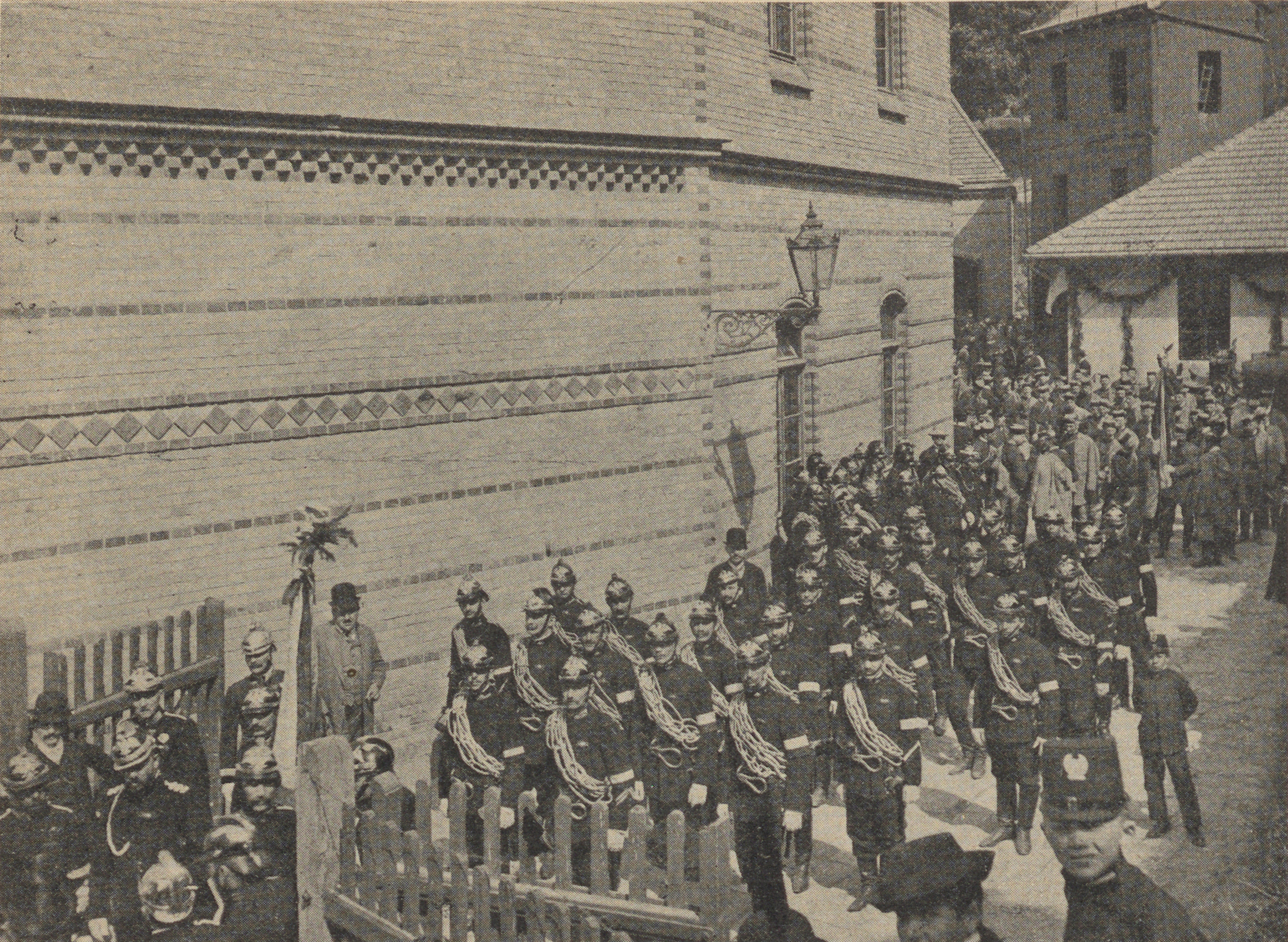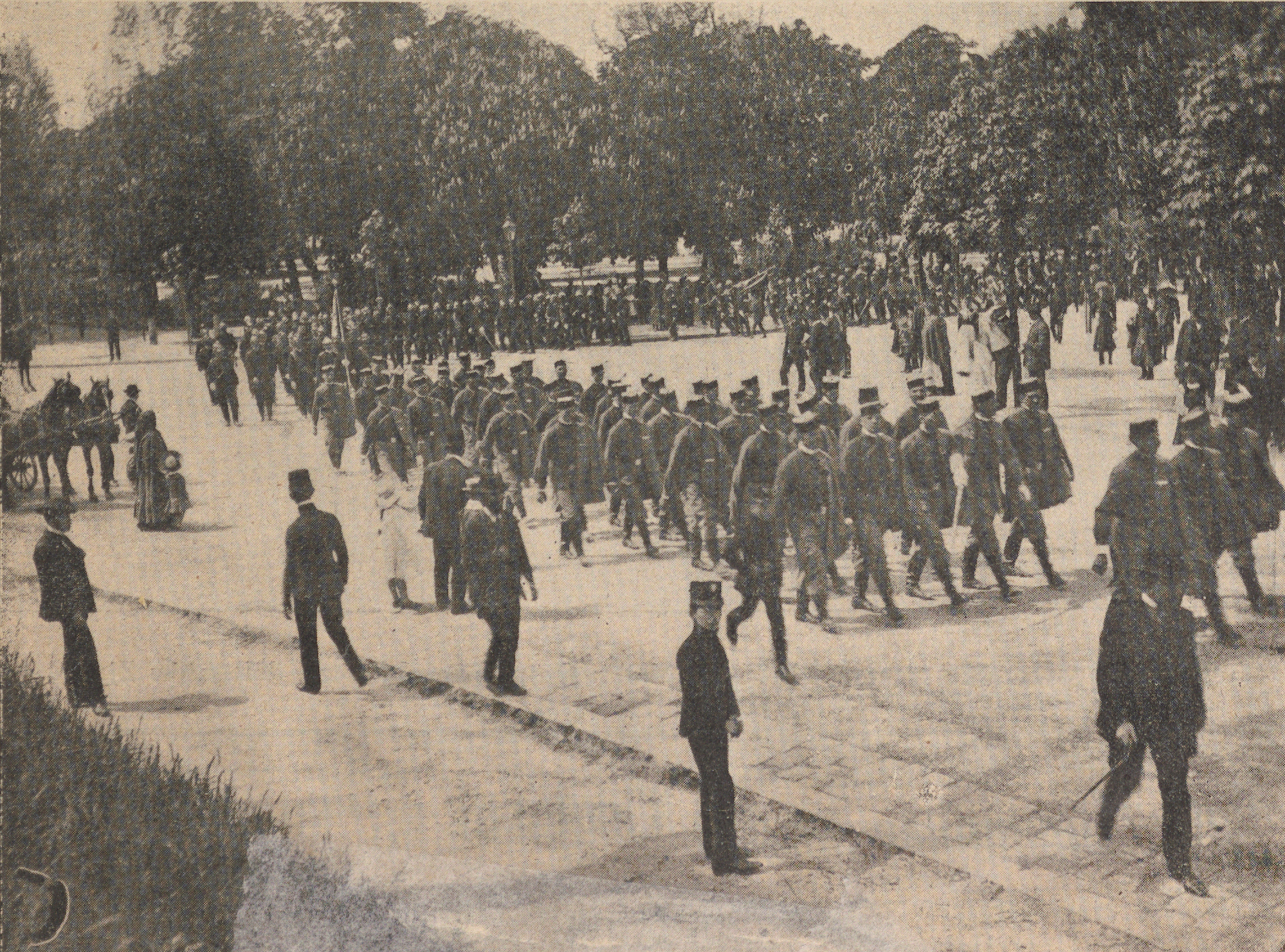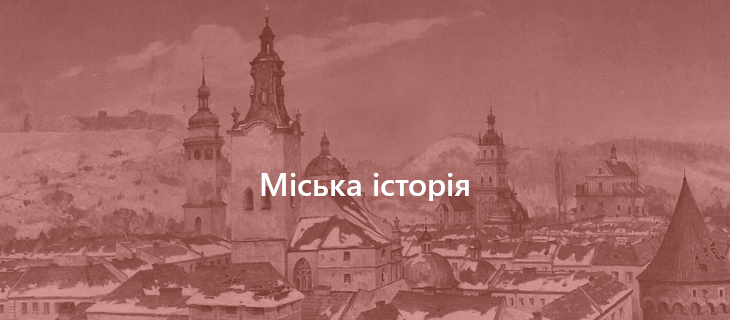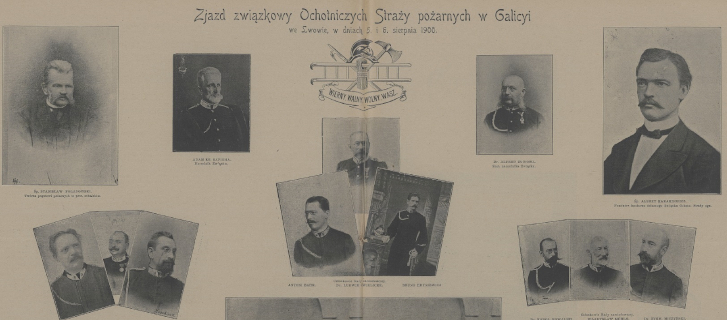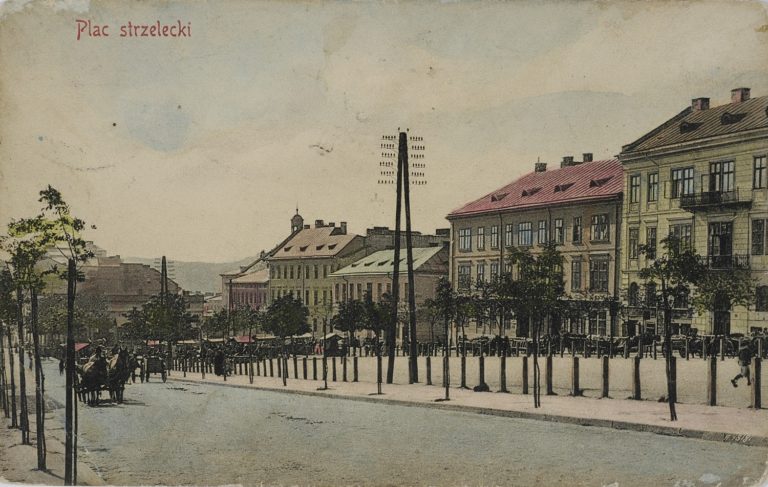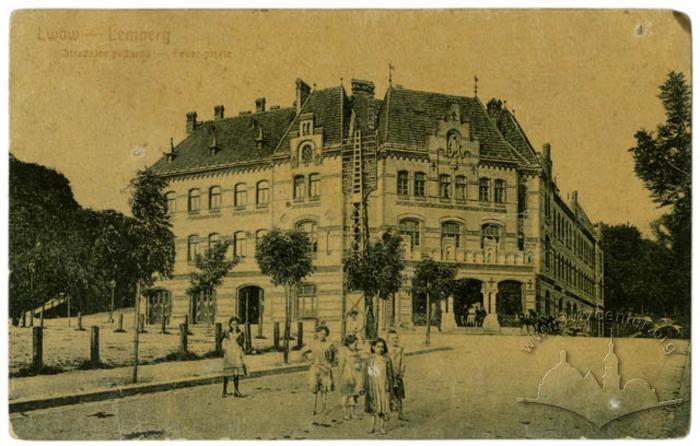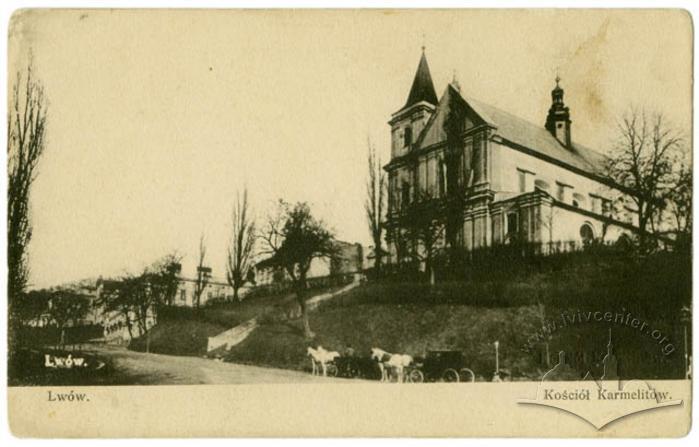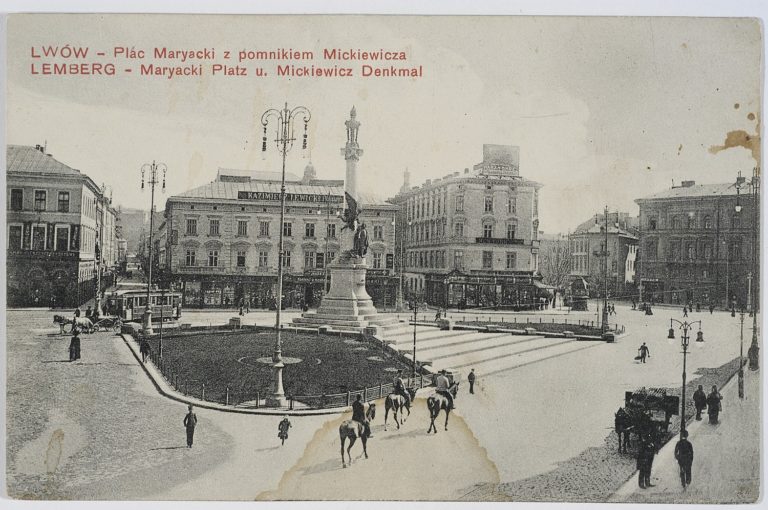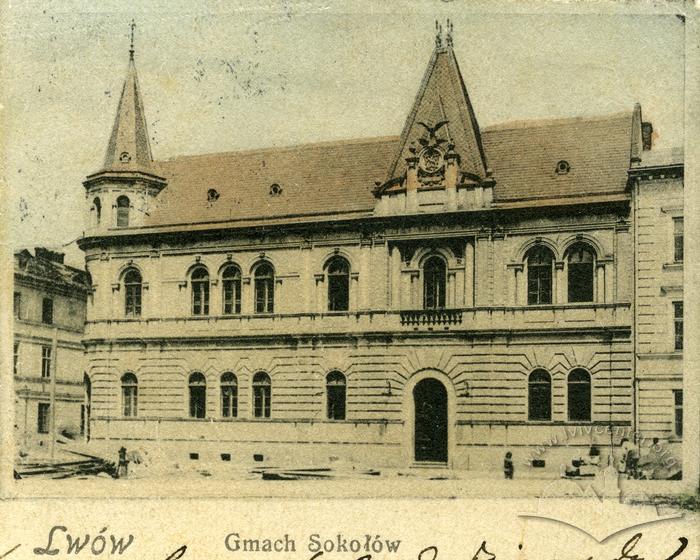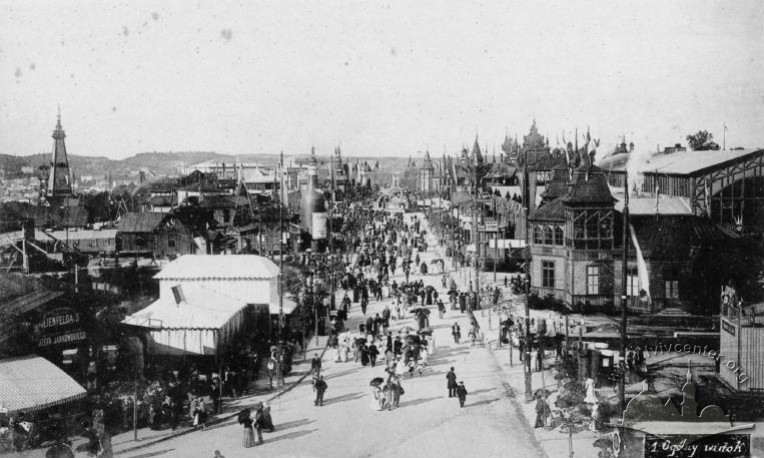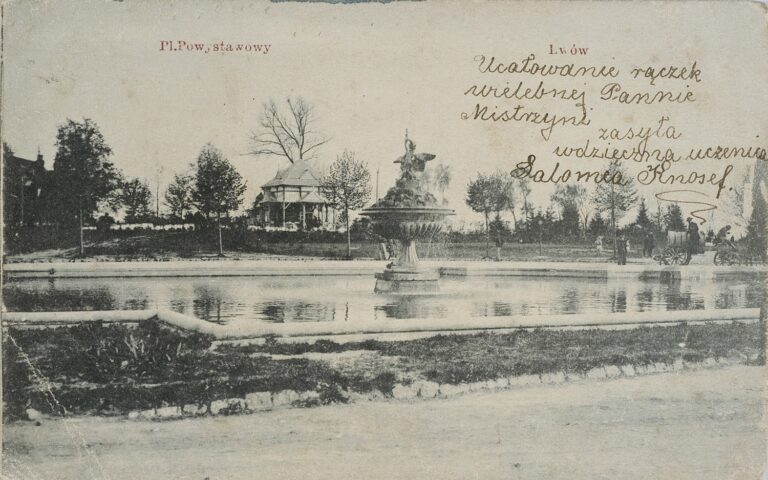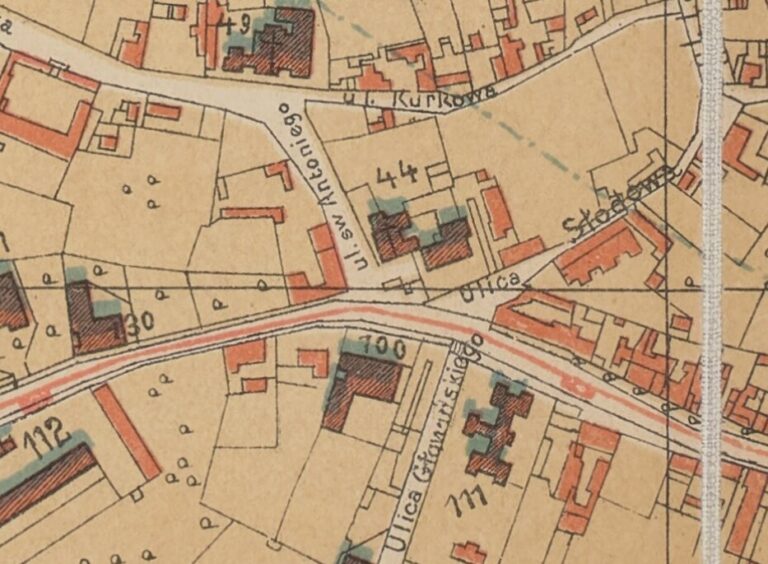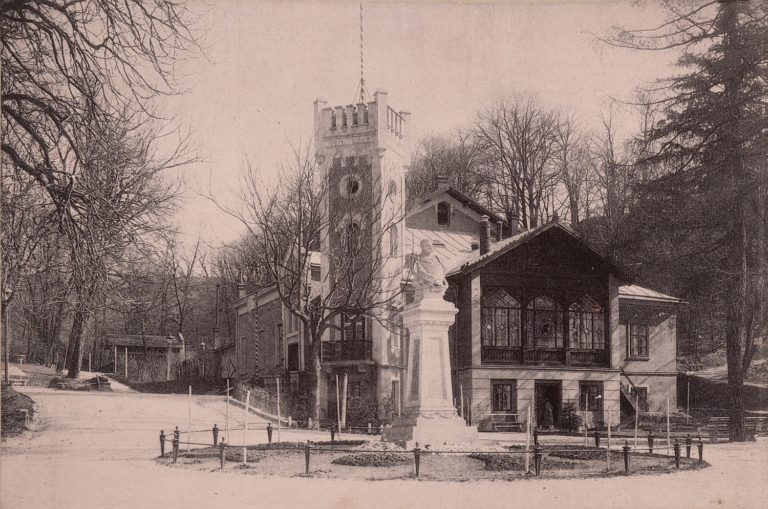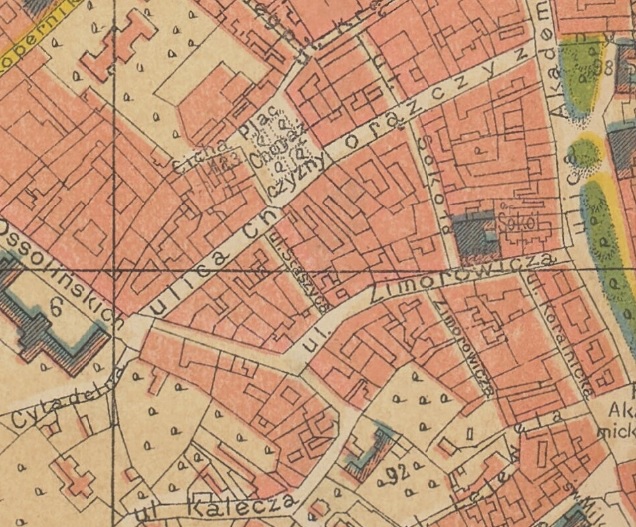In 1909, Lviv celebrated the 40th anniversary of the Fire Association Sokół. The anniversary of this association was an opportunity to demonstrate success in city management and to show that a Polish association was capable of effective self-organization. Also, it was an opportunity to "play with one's muscles" as the event had a clearly paramilitary character.
The anniversary of the organization, founded in the Austrian period, is an example of a new type of "policy of presence." The ideology of "caring for the city" can be seen here. As the "civil guard" seemed to replace the military during the emperor's visits, so the volunteer "falcons" (pol. sokoły) were an alternative to regular firefighters. This was a different type of historical memory: it was not about some relics from the time of the Polish-Lithuanian Commonwealth, but about vivid examples from the memory of one or two generations.
The issue of fire protection in Austrian Lviv became acute in the mid-19th century after the shelling of the city by Austrian troops in 1848. Since the 1860s, after the adoption of the constitution, volunteer fire brigades were formed in many towns and villages. Patriotic organizations like the Polish Sokół and the Ukrainian Sokil and Sich actively joined this cause. In 1869, the fire department of the Polish Sokół began to operate in Lviv (the Sokół sports association was founded two years earlier), in 1875 the Provincial Volunteer Fire Association was founded.
It is clear that in such a situation it was not just about putting out fires: the volunteers were seen as an example of true patriotism and often participated in various national manifestations. In general, participation in fire associations of this kind was a common practice for members of paramilitary structures and made their activities not only attractive in the eyes of a patriotic citizen, but also socially useful.
The course of the event
The celebrations were held on Pentecost (Green Holidays), when the old "chicken king" was traditionally dethroned and the competition to choose a new one began. On the first day of the Green Holidays, May 30, 1909, the members of the Rifle Association gathered in the city hall, marched to the residence of the "chicken king", attended a solemn mass in the Franciscan monastery and started festive competitions on ul. Kurkowa, as it was every year.
On the same day, members of the Sokół fire association and guests gathered at 8 a.m. in the courtyard of the fire department on pl. Strzelecki, from where they went to the Carmelite monastery to attend a divine service. Then there was a solemn march to the monument to Mickiewicz and then to the house of Sokół-Mother at ul. Zimorowicza 8 (now vul. Dudayeva). At 11 a.m., a solemn gathering started there with the traditional awarding of decorations (memorial decorations for 35, 30 and 25 years of service), a musical program by the choir of the Echo Association, speeches, etc.
At 16 p.m., the festivities began on the post-exhibition area in the Stryisky Park. There, in addition to the usual entertainment, the guests were recommended to see the Racławice panorama and the exhibition of goods for religious use (which was held in the Art Pavilion at that time). From a financial point of view, according to what was reported in the press, the festivities "passed very well."
On the following day, Monday, May 31, at 9:30 a.m., the firefighters demonstrated exercises in their yard. From 11:00, visitors could view their equipment used for fighting fire. Later, a joint lunch was held in the Strzelnica premises and the festivities were closed.
As it was usual in cases like this, a special brochure about the history of fire protection in Lviv was published. It was offered for sale to the celebration participants at a special price. People also traditionally assembled to show the event’s massiveness; thus, the Sokół members were obliged to arrive at St. Anthony's school in advance in order to collectively join the celebration.
Interpretation, ideology
As usual, the patriotic press publications were full of pathos. At the same time, the number of years of "history" and the age of the honoured association were seemingly not of decisive importance. Both the 550 years of the shoemakers’ guild and the 40 years of the fire association were about "glorious Polish history."
Likewise, the representation at the anniversary was traditional: a lot of members of the Sokół, Skała and Gwiazda societies, representatives of the City Council, as well as participants of the 1863 uprising.
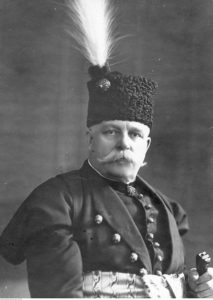
Józef Neumann
The actual "fire" part of the ideology was more interesting. The vice-president of Lviv, Józef Neumann, spoke about the fact that fire brigades deserved respect not only as urban organizations, but above all as national ones. He also said that structures of this kind should exist all over the province, because "someday the time will come when the Motherland needs them." Other speakers, like the authors of newspaper articles, also did not dwell on the topic of fire extinguishing for a long time, but immediately moved on to the revival of the Motherland, the duties of a citizen before the nation, and the like. The important tasks of volunteer firefighters were considered to be participation in national demonstrations in their uniform (after all, the mere presence of people in uniform at a rally already meant a lot), readiness to defend their land from enemies, and campaigning among workers and peasants.
The government-run Gazeta Lwowska offered little more than a general description of the event, the Ukrainian press ignored the anniversary at all.
The celebration of the 40th anniversary of the Fire Association Sokół was similar to another anniversary, the 25th anniversary of the Voluntary Provincial Fire Association celebrated in 1900. The only difference was that the 1900 event was announced as a "provincial" one (thus involving the significant participation of the Ukrainians) but was actually held as a Polish national event. Whereas in 1909, there were no such misunderstandings, because the anniversary of a definitely Polish association was celebrated.
The Fire Association Sokół and its anniversary celebration are a classic example of Polish "national building up" during the times of autonomy, when, enjoying greater freedom than in Russia or Germany, the Poles were able to develop their own paramilitary structures. This is an example of historical memory, focused not on the events of the ancient past (like the founding of the Rifle Association or the shoemakers' guild), but to the current history of life under foreign rule.
